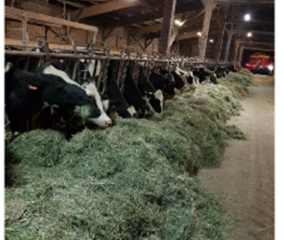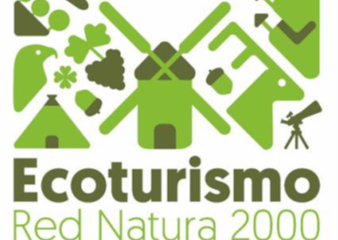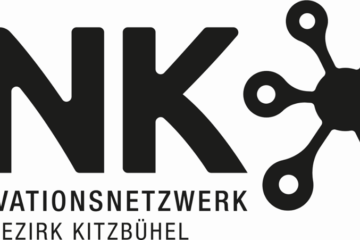Innovating Communities
Ireland
Introduction
Where: The Southern Border Region in Ireland is mainly rural in nature and is made up of 6 administrative Counties, Donegal, Sligo, Leitrim, Cavan, Monaghan and Louth.
Key Issues: Concerns about impact of BREXIT on Border communities, social and economic marginalisation, need for greater endogenous development and social innovation.
Needs: Better bottom-up problem-solving capacity leading to stronger social innovation in the region. Rural communities in the Southern Border counties are geographically distanced from policy making and centres of power. The need for communities to be able to respond quickly and effectively to challenges in areas like Climate Transition, Health Services, Mobility and food chains and weather patterns is now well established.
What is the answer: With appropriate training, communities can become better problem-solvers.
“Innovating Communities” is a project aiming to enhance resilience, foster local development, and promote community-led initiatives across six participating Local Action Groups (LAG) areas spanning Donegal, Leitrim, Sligo, Cavan, Monaghan, and Louth. This is achieved by imparting Design Thinking, a creative problem-solving methodology, to community groups, businesses, and individuals through a series of facilitated courses tailored to address local challenges. The training adopts a ‘person-centred design’ approach, allowing for the identification of area-specific concerns and encouraging participants to explore innovative and sustainable solutions. Over the course of two and a half years, the Innovating Communities project has successfully trained 1,470 individuals within the Southern Border region of Ireland. Throughout this period, it has also addressed 227 local opportunities and 51 challenges proposed by community groups and individuals. These encompass a wide range of issues, such as securing studio spaces for an artist collective in Louth, revitalising town centres in Sligo, conserving rivers and lakeshores in Cavan, developing tourism-oriented recreation corridors in Donegal, countering village depopulation in Co. Leitrim, and promoting climate action, biodiversity, and sustainability in Monaghan. The project has trained 38 local individuals as co-trainers, ensuring the continuity of problem-solving expertise within the region beyond the project’s conclusion.
Presentation of the project
Innovating Communities is a LEADER Cooperation project that is funded under the LEADER
- Cooperation element of the Rural Development Programme 2014-2020 and is the first of its kind in its Border region of Ireland. Innovating Communities aims to strengthen resilience, local development and community-led action in each of the six participating LAG areas across Donegal, Leitrim, Sligo, Cavan, Monaghan and Louth, by training community groups, businesses and individuals in Design Thinking – a creative problem solving process. The free training and mentoring in Design Thinking is delivered through a series of facilitated courses formed around a local challenge. Design Thinking is a 5 stage problem solving process: at Stage 1 you learn how to EMPATHISE with the people affected, at Stage 2 you DEFINE the challenge, at Stage 3 you are supported to develop IDEAS, at stage 4 you TEST these ideas and then finally, at stage 5, you MATERIALISE the solutions.
- The training uses the ‘person centred design’ approach to identify topics important to an area and the training support helps people explore ideas and the best possible sustainable solutions. The project has found this to be a very efficient and democratic means of solving the most pressing issues, rather than the LEADER partner relying on potentially out of date desk research or census data. Innovating Communities is a ‘Social Innovation’ approach, and this method is best employed for responding to specific challenges and opportunities which require responses as opposed to more general development initiatives. The project is an Interterritorial cooperation initiative involving Monaghan Integrated Development CLG, Louth LEADER Partnership CLG, Leitrim Integrated Development Company CLG, County Sligo LEADER Partnership Company CLG, Donegal Local Development CLG and Breffni Integrated Development CLG.
- After two and a half years of delivery, the Innovating Communities project has trained 1470 people across the Southern Border region in Ireland in problem solving techniques to support local community development and Social Innovation.
- While doing this, over 227 local opportunities and 51 challenges that community groups and individuals put forward have been tackled locally. These include tackling challenges like finding studio spaces for an artist collective in Louth, breathing life back into a town centre in Sligo, considering rivers and lakeshores in Cavan, developing a recreation corridor for tourism in Donegal, tackling village depopulation in Co. Leitrim and supporting climate action, biodiversity and sustainability across Monaghan.
- 38 local people were also trained as Co-Trainers during the process to ensure a legacy of problem-solving knowledge is maintained in the region after the training projects has concluded.
- Over 70% of training participants agreed that taking part in the course has helped them with new ideas for their communities and the project successfully engaged high numbers of young people.
A LEADER Showcase Event to share the learning from the project was also held.
- Todays rural challenges are complex & require new ways for communities to engage and problem-solve (i.e Climate Change, Migration, Smarter Villages etc).
- The Innovating Communities (IC) project was designed to support communities to more effectively respond endogenously and creatively to local challenges and improve capacity in problem solving.
- The project had the goal of addressing the key challenges for places in the region, to empower people to be part of the response and ideas, and broaden the ownership base of local strategies, plans and opportunities.
- The IC project was focused on developing design-thinking skills in rural citizens, thereby providing them with the means to carry out evidence-based decision-making and empower them to take plans to the next step. ‘Design Thinking encourages organisations to focus on the people they’re creating for, which leads to better products, services, and internal processes…’, learning by doing.
- Local community capacity to effectively engage in the development of their rural areas and to co-design solutions for a sustainable future is highly dependent on the capacity of community actors to problem solve and not get overwhelmed by emerging challenges. By viewing community challenges as issues to be worked through systematically and opportunities to be pursued is a more productive and manageable process for rural communities. The Innovating Communities approach can be used as a rural development template for effective rural community capacity building going forward.
- Main Results for the IC project:
- 1,470 people trained in problem-solving tools (Design Thinking)
- 227 opportunities & 51 challenges identified by communities across the region
- Many new cohorts engaged (i.e. Youth, Migrants)
- High satisfaction rates of participants >90%
- Over 70% of participants agree that taking part in the course has helped them with new ideas for their communities
- 38 local Co-Trainers to embed the legacy of IC in their communities
- 878 young people trained in problem-solving skills
- A LEADER Showcase Event was held to share the learning and the partners have also presented at national and international fora.
- The project partners are very happy with the overall outcomes achieved for the project. Despite the impact of COVID-19 pandemic on the timing and amount of in-person training, all 3 KPI targets were exceeded. The key learning from the project is that local communities when empowered to be solution seekers, are more than willing to play their part. The training has the dual effect of developing collective solutions to local rural challenges while also upskilling individuals as better problem-solvers for the future.
- Is it sustainable?
- With the LEADER / CLLD methodology, yes the IC approach is sustainable and can be replicated, but requires greater levels of investment in the ‘animation of the local rural community’. Its essence, the success of bottom-up approaches like Innovating Communities is highly dependent on sufficient funding being invested in the LEADER/CLLD methodology. There is significant scope for the IC approach to become more mainstreamed through demonstration of its use and impact. A much broader range of policy decisions could be better shaped using this co-design approach.
- What are the main lessons we can learn from it?
- Design Thinking (DT) fits very well with the LEADER developmental approach, SVs & the EU LTVRAs for Stronger, better Connected, Resilient and more Prosperous rural areas.
- DT method adds value and strengthens the bottom-up approach and enhances the co-design principal where all have a voice
- The project provided high levels of support to local groups and would-be innovators to move more confidently and creatively in the problem solving process
- The IC process is very democratic and aims to animate and facilitate the rural population to solve the most pressing issues relevant at a point in time and encourages wider community engagement in the co-design process.


